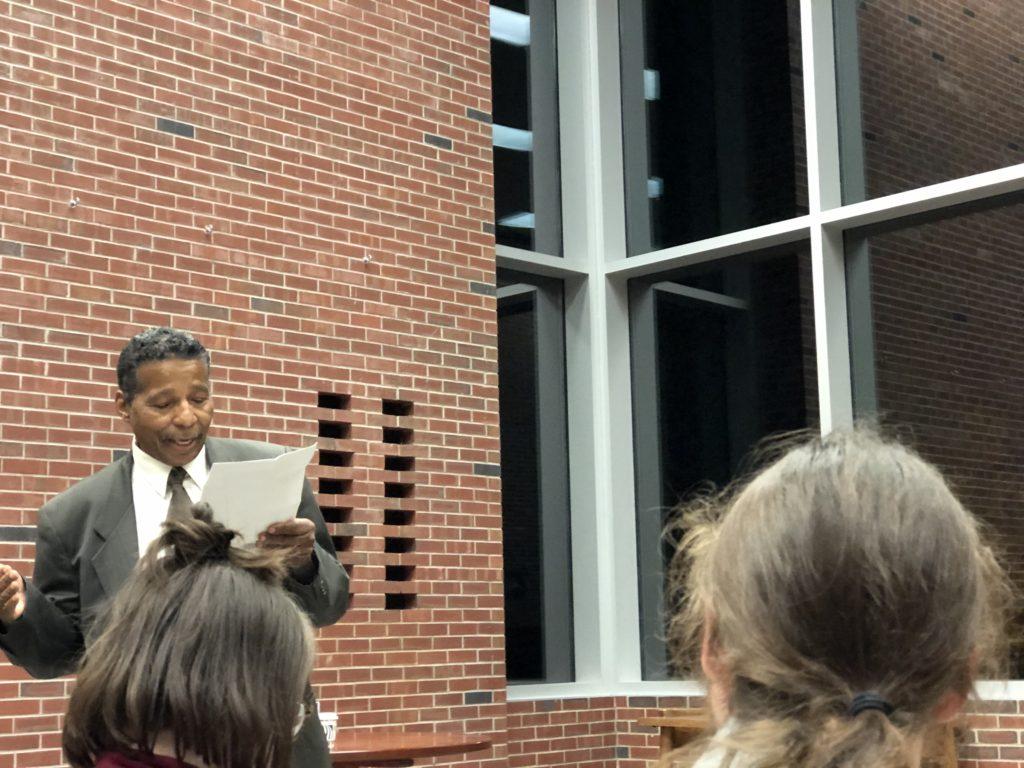Students, professors and community members gathered in Lydia M. Olson Library atrium Tuesday, Nov. 19, gingerly holding their favorite literary pieces written by the late author Toni Morrison to perform live readings in her admirable memory.
Many in attendance wished to read passages from Morrison’s masterpieces like “The Bluest Eye”, “Sula” and “Beloved.” Everyone listened receptively throughout the event.
“Toni Morrison is one of the most important American writers of the 20th and 21st centuries,” English associate professor Lesley Larkin said. “She really changed American literature quite dramatically by putting out narratives focused on the lives of black people, and written quite deliberately for black people.”
Morrison addressed issues in society through her writing such as racial discrimination and class differences in a way that demanded to be heard by everyone.
Larkin said that Morrison gives responsibility to the readers, her work has a way of drawing attention to those responsibilities and nobody is left off the hook. Morrison’s texts teach us to use language in a way that is life affirming, Larkin added.
“Her writing is beautiful, on a sentence-to-sentence level. It’s lyrical and poetic,” Larkin said. “It is full of arresting and concrete imagery.”
Larkin highly recommends that everyone check out Morrison’s work.
“When ‘Beloved’ came out, it really took the literary world by storm because nobody had ever done anything like that before,” English Department Head Lynn Domina said.
Morrison was an accredited writer, to say the least. She won a Nobel Prize for Literature in 1993, and her book “Beloved” also won a Pulitzer Prize in fiction in 1987.
“It incorporates this magical realism, but is really persuasive and readers had to really think about the experience of slavery differently,” Domina said. “I think she really challenges us as human beings to act humanely toward each other. To think about how even some of the little actions we do can have a profound effect on someone.”
In 2010, Morrison was awarded the Presidential Medal of Freedom. This award was given for “an especially meritorious contribution to the security or national interests of the United States, world peace, cultural or other significant public or private endeavors,” according to britannica.com.
Morrison passed away at age 88 and she left behind a legacy of fictional, as well as nonfictional knowledge. Her work serves as a vessel for issues of inequality to make way in the popular light.
As said by Morrison, “We die. That may be the meaning of life. But we do language. That may be the measure of our lives.”


























